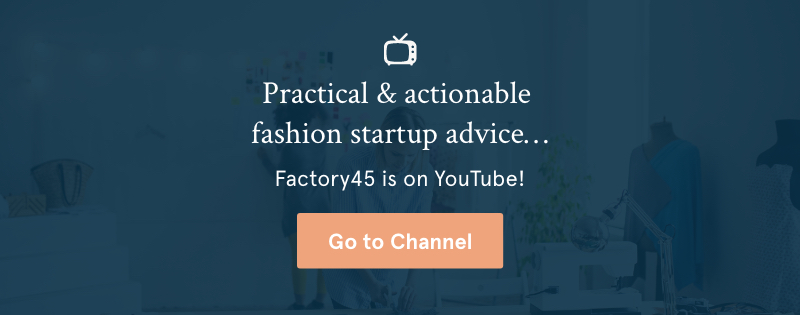How to Stand Out as a Sustainable Fashion Brand
Last week I was on “workcation” with my family in Croatia.
And one day, while we were driving on the winding island roads of Hvar, I saw a sign for a restaurant that caught my eye.
(This isn’t the first time that’s happened.)
The sign for the restaurant said:
“Mostly homemade food.”
I looked at my husband and said, “Well, you have to appreciate their honesty…”
And then it got me thinking about the sustainable fashion world — and all of the new brands launching with sustainability at the forefront of their business models.
The good news is that in the past 10 years the term “sustainable fashion” has become more and more recognizable and well known.
The bad news is that the term is now often overused and sometimes even greenwashed.
Companies claim to be “a sustainable fashion brand,” but they use it as an overarching brand mark instead of explaining exactly how their company implements sustainability into their supply chain.
There’s really no such thing as “perfectly sustainable,” and I see red flags anytime a brand claims to be so.
With many of you being the future of this industry, I’d encourage you to think more deeply about the words you use to describe your sustainable fashion brand.
Because I think we can do better.
Yes, there are words like “conscious,” “socially-driven,” “eco” and “ethical” but how can you describe your brand’s ethos in a way that stands out from the rest?
And even more so, in a way that is transparent and honest?
One way is by getting specific.
Think about the words that your target customer cares about. Sift through the phrases that would peak their interest.
Because the truth is,
A sign for “homemade food” wouldn’t have caught my attention.
My mind would have just categorized it as another cute local restaurant.
Adding the word “mostly” not only piqued my curiosity but made me feel trust.
I knew that if I went into that restaurant to eat, I would know exactly which items on the menu were homemade and which ones weren’t.
And that same thought process can be applied to your own customers.
Because ultimately, that’s what they want to feel. A customer who cares enough to seek out sustainable fashion wants to be able to trust you.
To trust that what they’re buying is mostly sustainable.



